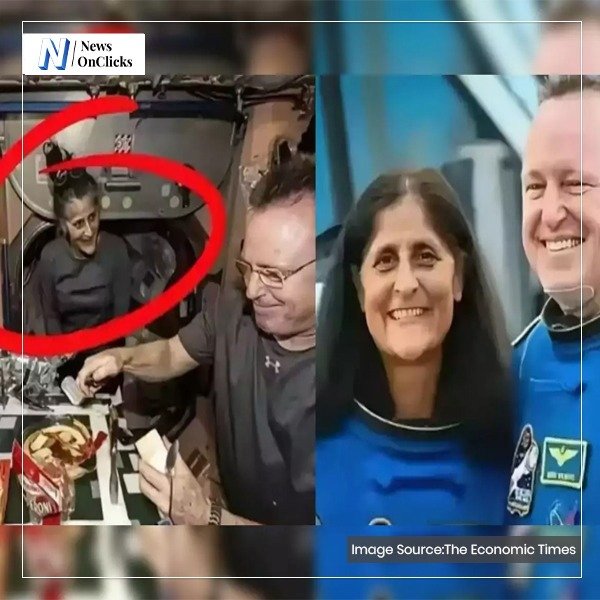
Astronaut Sunita Williams and her colleague Butch Wilmore have spent over five months aboard the International Space Station (ISS). During this time, their food supply, particularly fresh produce, has become a growing concern, despite assurances from NASA that they have enough food to sustain them. Recent photos of Sunita Williams, appearing thin and hollow-cheeked, have raised alarm about her health, and experts worry that the lack of fresh food may be contributing to weight loss.
What Is the Food Situation of Sunita William on the ISS?
Astronauts on the ISS, including Williams and Wilmore, have access to a variety of pre-packaged foods. These include pizza, roast chicken, shrimp cocktails, breakfast cereals, tuna, and powdered milk, which provide adequate calories for the astronauts. However, the supply of fresh food—particularly fruits and vegetables—becomes increasingly limited as time passes.
While fresh fruit is available when astronauts first arrive at the station, after a few months, they rely on freeze-dried or packaged vegetables. This shortage becomes more noticeable over time, as it takes several months for the ISS to receive new supplies of fresh produce.
Weight Loss: A Natural Effect in Space?
Williams’ weight loss, as shown in the photos from space, may not be due to a lack of food. Microgravity, or the weightlessness experienced in space, causes a redistribution of body fat. In space, astronauts lose muscle mass and may appear thinner due to the absence of gravity. Williams has confirmed that her weight loss is not caused by insufficient food but by the way the body reacts to being in space.
How Does Space Food Work?
NASA assures the public that the astronauts receive adequate caloric intake, and experts carefully calculate their food supply to meet nutritional needs. Each astronaut consumes 1.7 kg of food per day, tailored to their specific needs. However, the astronauts pre-cook all food on Earth, package it for long-term storage, and then reheat it in space.
While the food supply is sufficient in terms of calories, the lack of fresh vegetables and fruits means astronauts miss out on the full range of nutrients that are important for long-term health. Fresh produce is difficult to deliver consistently to the ISS, and this has sparked concerns about the astronauts’ overall nutrition and well-being.
Challenges of Long-Term Space Missions
One of the biggest challenges for astronauts on long-term missions is maintaining a balanced diet. In addition to the limited availability of fresh food, the space environment makes it difficult for astronauts to prepare meals the way they would on Earth. Astronauts must pre-package and reheat all food, and they rely on a recycling system that turns their urine and sweat into drinkable water.
Despite these challenges, NASA monitors astronauts’ health closely. Experts insist that there is no immediate threat to the astronauts’ well-being from food shortages. However, the absence of fresh produce raises concerns about the long-term effects of nutrient deficiencies, especially as space missions extend beyond Earth’s orbit.
The Future of Space Food: Growing Fresh Produce in Space
NASA is already working on solutions to improve space food systems. One promising idea is the development of space agriculture, which would allow astronauts to grow their own fresh food using hydroponic systems or soil-less farming techniques. This would reduce the reliance on Earth-based supplies and provide astronauts with a more balanced diet during extended missions, such as trips to the Moon and Mars.
By growing food on the ISS or future space stations, astronauts could access fresh fruits and vegetables, improving their nutrition and well-being. This could also have positive psychological effects, as having the ability to grow and consume fresh food would enhance astronauts’ morale.
Conclusion: Ensuring the Health of Astronauts
While Sunita Williams and Butch Wilmore are not in immediate danger due to their food supply, the issue of fresh food remains a key challenge for long-term space missions. The need for innovative solutions to grow food in space is becoming more urgent as space agencies plan for future missions to the Moon and Mars.
NASA’s work in space agriculture will be critical to the success of these missions, ensuring astronauts have access to the nutrients they need to stay healthy. As space exploration advances, the ability to provide astronauts with fresh, nutritious food will play an essential role in ensuring their well-being and the success of future missions.
For more article on Sunita Williams, please click here!









